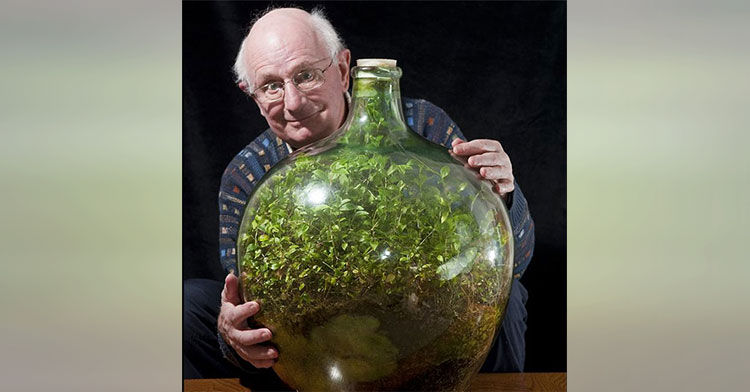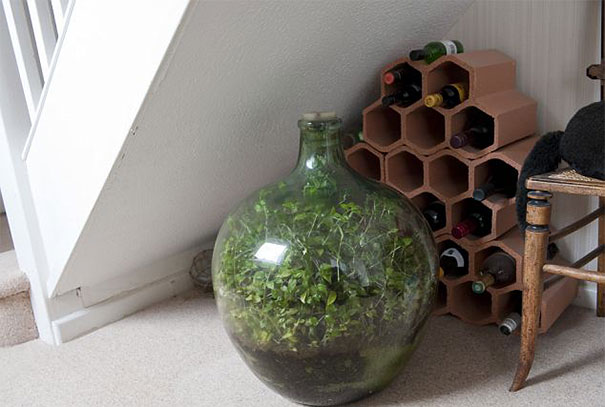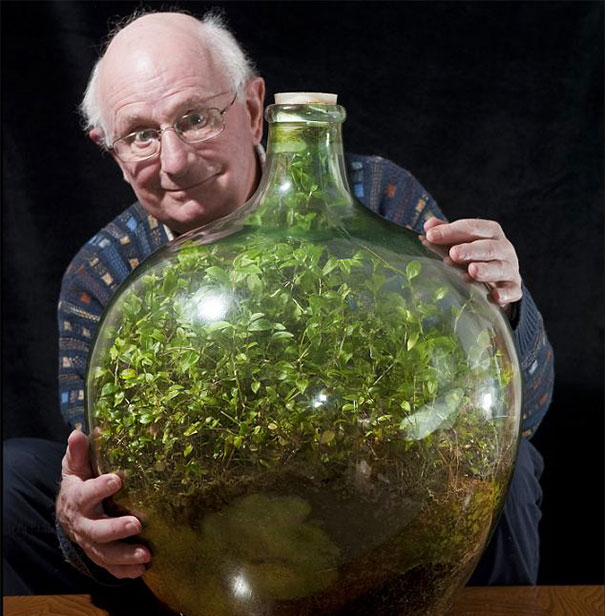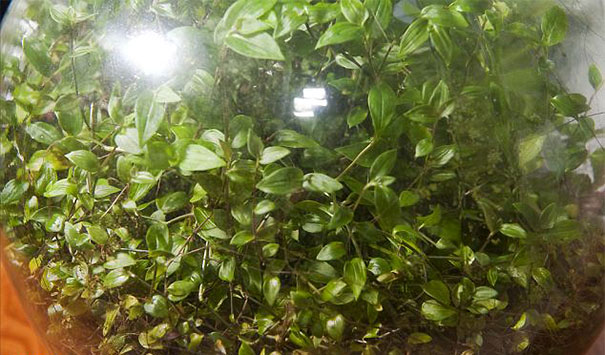For those of us who weren’t blessed with a green thumb, the idea of keeping a plant alive for over 60 years is mind-boggling.
David Latimer of Surrey, England, insists he doesn’t have a green thumb either. Instead, he has the most low-maintenance houseplant ever: a bottle garden he started with a single seed back in 1960!
On Easter Sunday in 1960, David, now a retired electrical engineer who is 80 years old, started the bottle garden out of sheer curiosity. There was an abundance of glass bottles in the marketplace at the time because the chemical industry had recently switched to plastic bottles. David snagged a 10-gallon carboy that once contained sulphuric acid, poured in some compost, and used a piece of wire to place a single spiderwort seedling into the soil.
“Bottle gardens were a bit of a craze and I wanted to see what happened if you bunged the thing up,” he told The Daily Mail.
So he sealed up the opening and set the container near a sunny window, allowing filtered light to enter through the glass. The bottle garden quickly formed its own ecosystem, using the light to produce photosynthesis and recycle nutrients.
While the large bottle garden looks impressive, David said, “It’s the definition of low-maintenance.” In fact, he hasn’t even watered it since 1972!
“It’s 6 feet from a window so gets a bit of sunlight,” he explained. “It grows towards the light so it gets turned round every so often so it grows evenly.”
Inside the bottle, the plant converts sunlight to energy, thus feeding itself. This photosynthesis also creates oxygen and adds moisture to the air, which then “rains” down on the plant. As for any rotten leaves, they drop off on their own, creating carbon dioxide for nutrients, which are then absorbed through the root system.
Aside from that one “little drink” he gave it back in 1972, David has not opened the bottle or moved it from its spot under the stairwell in decades. The only reason we know about it at all is that he called in to a BBC Radio program in 2013 to ask the experts whether it was “of scientific or horticultural interest.” As it turned out, it was – and is!
David plans to leave the bottle garden to his children after he passes. If they don’t want it, the impressive mini-ecosystem will go to the Royal Horticultural Society. As far as experiments go, we’d say this one is a fascinating success!
Share this story to encourage more would-be bottle gardeners to try something new.
Want to be happier in just 5 minutes a day? Sign up for Morning Smile and join over 455,000+ people who start each day with good news.






